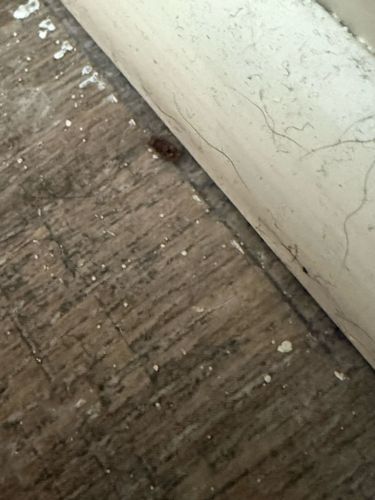Carpet Beetle
Scientific Name: Anthrenus scrophulariae (or similar Dermestidae species)
Order & Family: Coleoptera, Dermestidae
Size: 2-4 mm (adults)

Natural Habitat
Indoors: carpets, rugs, upholstered furniture, clothing, stored food products, taxidermy, museum specimens. Outdoors: nests of birds, rodents, and insects, flowers where they feed on pollen and nectar.
Diet & Feeding
Larvae: keratin-containing materials (wool, silk, feathers, fur, leather), dried animal products, stored food items (grains, cereals, pet food). Adults: pollen and nectar outdoors, do not typically feed indoors.
Behavior Patterns
Larvae are the destructive stage, feeding on organic materials. They prefer dark, undisturbed areas. Adults are winged and can fly; they are attracted to light and often found near windows. Life cycle involves complete metamorphosis (egg, larva, pupa, adult).
Risks & Benefits
Risks: Larvae can cause significant damage to household goods and museum collections by feeding on natural fibers. They do not bite or transmit diseases but can cause skin irritation or allergic reactions in sensitive individuals due to their bristly hairs. Benefits: In nature, they play a role in decomposition by feeding on dead animal matter.
Identified on: 11/5/2025